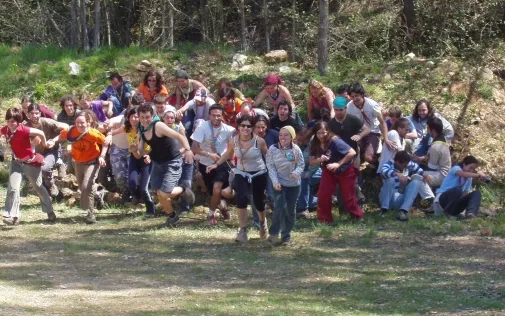
The relationship established with its environment and the people with whom they collaborate or support is completely different from the one with the professional and technical team of the organization.
Some days ago, at a team meeting, the issue was mentioned regarding the place that volunteering occupies in our organization and in non-profit organizations in general…this got me thinking about the doubts and reluctance that volunteering still poses, in non-profit organizations and in society at large.
Do volunteers replace remunerated staff? Does they make jobs more precarious? Is the same as working for free? Is it looked down upon socially? Does it demobilize the population and damage the social struggles?
NO. I write this in capital letters because, in my opinion, it is a big NO.
I have been involved in volunteering some way or another almost all my life. When I was small, I went to a scouting centre where the leaders were all volunteers; I knew this but I wasn’t really aware. When I grew slightly older, I myself became a leader for quite some years. Of course, I was a volunteer. Now I have a daughter; she too goes to a scouting centre, actually, the same one I went to. And, despite carrying volunteering in my DNA, I had never been as aware as I am now of what volunteering really means, looking at what the scouting leaders do every week.
Their motivation, energy, effort and determination; their responsibility, consistency, their desire to change things and change the world. Each in their own way and however they can. For me, that is what volunteering is about.
The structures and ways of volunteering in organizations open a new door for people who probably wouldn’t mobilize individually for a cause to take action in their communities, locally, contributing to a social and collective change through a well-structured and thoughtful form of volunteering that contributes to creating a collective, critical and social awareness. In this regard, from the non-profit organizations, many still face a challenge: to pull down the barrier that often exists between technical staff and volunteering, between “we” and “they”.
Volunteers are vital. The relationship it establishes with its environment or with the people with whom they collaborate or support is completely different from the one with the professional and technical team. Among many other things, volunteering contributes human capital, commitment and community to the organizations, while the latter contribute expertise and accompany the volunteers, making volunteering more fruitful. Technical staff and volunteers are two sides of the same coin and contribute different added value that is really important and necessary for social transformation.
People want to do things, change things, transform. Often it is said that volunteering is altruistic…I think it is just the opposite: volunteering is a selfish act…or even hedonistic. True, volunteering brings benefits: we learn new things, new skills and abilities…but we do volunteering because we like it, because we feel proud, and fulfilled contributing to improve our surroundings. And once we stop enjoying it, we stop volunteering.
Volunteering is a driver of change; of a global change, but especially of local change, at a community level, and a personal one too…where our origins and social status are not important and where we all have an equal standing. Because we all fight to change the world…the world that surrounds us.



Add new comment